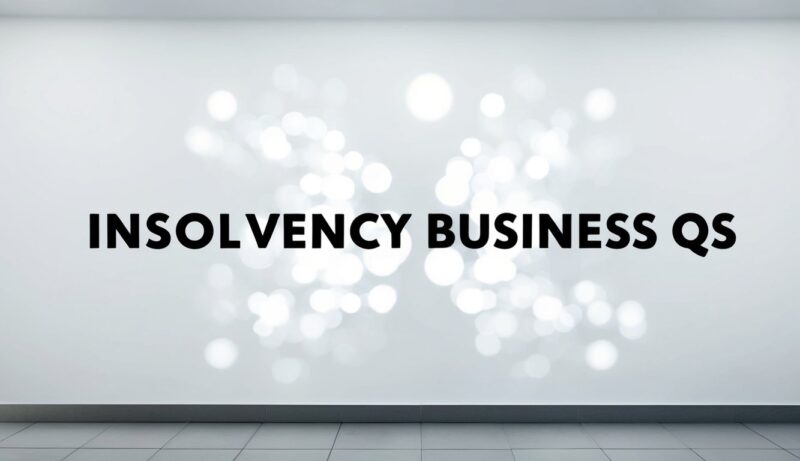Top 10 Key Business Questions on Insolvency
As a company director, you likely face numerous questions about managing your business, especially during challenging times. From using company funds for liquidation to handling insolvency situations, there are many complex issues to navigate.
It’s important to be aware of the legal implications of your actions as a director. For instance, taking dividends when your company is insolvent is highly unadvisable, and you cannot dissolve a company with an outstanding Bounce Back Loan. However, you do have options such as buying back assets from your company or potentially using the same name for a new venture, provided you follow the proper procedures.
Key Takeaways
- You can use company funds for liquidation, but taking dividends during insolvency is inadvisable – provide us with the specifics and we can advise
- Buying back assets is possible, but selling an insolvent company is not recommended
- Conversations about your company’s financial situation are confidential and free with professional advisors
If you prefer you can simply speak with us and we are happy to offer a Free CVL Consultation – advice@andersonbrookes.co.uk or call on 0800 1804 933 our freephone number (including from mobiles).
1. Using Company Funds for Winding Up
You can indeed use company funds to pay for liquidation. This is often a practical approach when closing down your business. It’s important to note that whilst you can utilise company money for this purpose, there are other financial matters to be cautious about during insolvency.
Taking dividends when your company is insolvent is highly inadvisable. This action could potentially lead to legal complications and personal liability issues.
Resigning as a director to sidestep insolvency is not a recommended course of action. Your responsibilities as a director don’t simply vanish upon resignation, especially if you were aware of the company’s financial difficulties.
Buying back assets from your company is permissible. This can sometimes be a beneficial option, but ensure you follow proper procedures and valuations to avoid any allegations of impropriety.
Selling an insolvent company is not advisable. Instead, focus on appropriate insolvency procedures to manage the situation correctly and protect yourself from potential legal repercussions.
To close your company, you’ll need agreement from 75% of all shareholders. This is a key step in the process and ensures that all major stakeholders are aligned with the decision to wind up the business.
Using the same name for a new company after insolvency is theoretically possible. However, you must strictly adhere to Section 216 of the Insolvency Act to avoid legal issues. This area can be complex, so seeking professional advice is wise.
You’re not personally liable for HMRC debts of your company. This separation of personal and business liabilities is a key benefit of operating through a limited company structure.
Dissolving a company with an outstanding Bounce Back Loan is absolutely prohibited. These loans must be properly addressed before any dissolution can occur.
Remember, conversations about these matters with insolvency professionals are confidential and often free of charge. They’re there to support you through this challenging process.
2. Dividends and Insolvency
When facing financial difficulties, it’s important to understand the rules surrounding dividends and insolvency. If your company is insolvent, taking dividends is highly inadvisable. This action could lead to serious legal consequences and personal liability.
Using company funds to pay for liquidation is permissible. This can be a sensible approach when winding up your business, as it ensures the proper legal procedures are followed.
Selling your insolvent company is not recommended. Instead, focus on exploring options for recovery or proper dissolution. Remember, you need agreement from 75% of all shareholders to close the company.
It’s important to note that you’re not personally liable for HMRC debts. However, this doesn’t mean you can ignore tax obligations. Always seek professional advice to handle tax matters correctly.
If you’re considering dissolving a company with a Bounce Back Loan, be aware that this is not allowed. These loans come with specific repayment terms that must be honoured.
3. Stepping Down to Evade Financial Troubles
Resigning as a director in an attempt to sidestep insolvency is not a recommended course of action. Whilst it may seem tempting to distance yourself from a struggling company, this approach can potentially lead to more complications.
Directors have legal responsibilities that extend beyond their tenure. Even after resignation, you may still be held accountable for decisions made during your time at the helm. This includes any actions that contributed to the company’s financial difficulties.
It’s crucial to address insolvency issues head-on rather than trying to avoid them. Seeking professional advice from insolvency practitioners or accountants is a more prudent step. These experts can guide you through the proper procedures and help you navigate the complex landscape of company financial troubles.
Remember, there are legitimate ways to manage insolvency:
- Company Voluntary Arrangement (CVA)
- Administration
- Liquidation
Each option has its own set of implications and procedures. It’s vital to explore these alternatives thoroughly before making any decisions about your role in the company.
4. Asset Repurchase Options
You have the ability to buy back assets from your company. This can be a viable option in certain situations. It’s important to approach this process carefully and ensure you follow proper procedures.
When considering asset repurchases, keep in mind:
- You must pay fair market value for the assets
- The transaction should be transparent and documented
- Seek professional advice to ensure compliance with regulations
Remember that while asset buybacks are possible, they require careful consideration and proper execution to avoid potential legal issues.
5. Selling an Insolvent Company
Selling an insolvent company is not advisable. When your business is facing financial difficulties, as a director, you have responsibilities to creditors and shareholders that must be carefully managed.
If you’re contemplating selling your insolvent company, be aware that potential buyers may be scarce. Most investors are wary of taking on a business with significant debts and liabilities. Additionally, any sale must be conducted at fair market value to avoid accusations of undervaluing assets.
Instead of selling, you might consider:
- Restructuring the business
- Negotiating with creditors
- Seeking professional insolvency advice
It’s important to note that you can use company funds to pay for liquidation if necessary. This is often a more appropriate course of action for insolvent companies than attempting a sale.
Remember, as a director, you shouldn’t resign to avoid insolvency proceedings. Doing so could be seen as an attempt to evade your responsibilities and may lead to personal liability issues.
If you decide to close the company, you’ll need agreement from 75% of shareholders. This process requires careful consideration and proper legal guidance to ensure compliance with all regulations.
6. Shareholders’ Agreement for Closure
When closing your company, you must obtain a shareholders’ agreement. You’ll need 75% of all shareholders to agree to the closure. This is a legal requirement and ensures that all parties are on the same page regarding the company’s dissolution.
It’s important to note that you cannot dissolve your company if it has an outstanding Bounce Back Loan. Attempting to do so would be illegal and could lead to serious consequences.
If you’re considering selling your insolvent company, it’s generally not advisable. Instead, focus on proper closure procedures to protect yourself and your stakeholders.
Whilst you can use company funds to pay for liquidation, be cautious about taking dividends if your company is insolvent. This could be seen as improper conduct and may lead to personal liability.
Remember, you can buy back assets from your company, but ensure this is done at fair market value to avoid any accusations of wrongdoing.

7. Reusing a Business Name After Liquidation
When facing insolvency, you might wonder if you can use your company’s name again in a new venture. The short answer is yes, but there are important rules to follow. Section 216 of the Insolvency Act outlines specific requirements for directors who wish to reuse a company name after liquidation.
To comply with the law, you must adhere to strict guidelines. These rules are designed to protect creditors and maintain fairness in the business world. Failing to follow these regulations can lead to serious consequences, including personal liability for the new company’s debts.
Before proceeding with a new business under a similar name, seek professional advice. A licensed insolvency practitioner can guide you through the process and ensure you meet all legal obligations.
Questions? Speak to an expert today! 0800 1804 933
8. HMRC Debt Liability
As a director, you are not personally liable for HMRC debts incurred by your company. This is due to the principle of limited liability, which separates your personal finances from those of the business. However, please note this protection only applies when you’ve acted responsibly and within the law.
If you’re facing financial difficulties, it’s essential to seek professional advice promptly. Ignoring HMRC debts or continuing to trade whilst insolvent can lead to serious consequences, including potential personal liability in certain circumstances.
Remember, HMRC debts should be treated with the utmost importance. Whilst you’re not personally liable, the tax authority has significant powers to recover funds and can take legal action against your company if debts remain unpaid.
It’s worth noting that confidential, free advice is available to directors facing financial challenges. Don’t hesitate to reach out for support – it’s in your best interest to address any issues as early as possible.
9. Winding Up a Company with a Bounce Back Loan
You cannot dissolve a company that has an outstanding Bounce Back Loan. This is strictly forbidden and could lead to serious legal consequences. If you attempt to close your business while still owing money from this scheme, you may face personal liability for the debt.
Bounce Back Loans were designed to support businesses during challenging times. They came with favourable terms, including low interest rates and initial payment holidays. However, these loans are not grants and must be repaid.
- Before considering dissolution, you must settle all outstanding debts, including any Bounce Back Loans. If your company is struggling to repay, there are options available:
- Contact your lender to discuss repayment plans
- Consider refinancing the loan
- Explore business rescue options like a Company Voluntary Arrangement
- Speak to Anderson Brookes!
If your company is insolvent and unable to repay the loan, you should seek professional advice immediately. An insolvency practitioner can guide you through the proper procedures and help protect you from potential personal liability.
Remember, attempting to dissolve a company with outstanding debts is not only illegal but can also damage your future business prospects and credit rating.
10. Safeguarding Your Private Discussions
Directors’ conversations with advisors are indeed confidential. You can speak freely about your company’s challenges without fear of disclosure. These private consultations come at no cost to you, providing a safe space to explore options and seek guidance.
When discussing sensitive matters like insolvency or liquidation, rest assured that your words stay between you and your advisor. This confidentiality allows for honest, open dialogue about your company’s situation.
Remember, advisors are on your side. They aim to support you through difficult decisions and complex processes. You can trust them to keep your information private while offering tailored advice for your specific circumstances.
Feel free to ask tough questions or share concerns. The confidential nature of these talks ensures you can get the help you need without worry.



